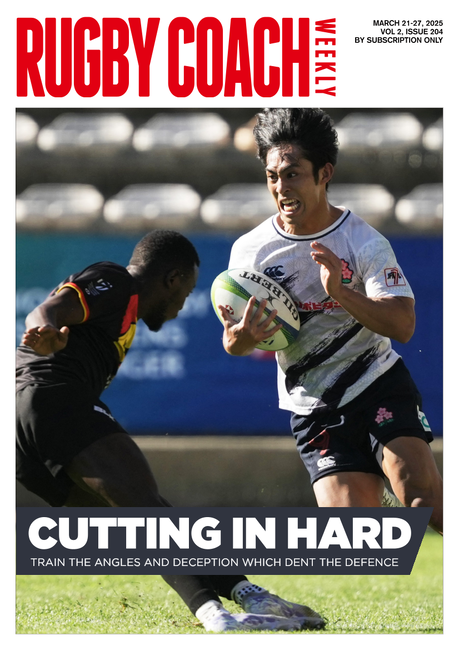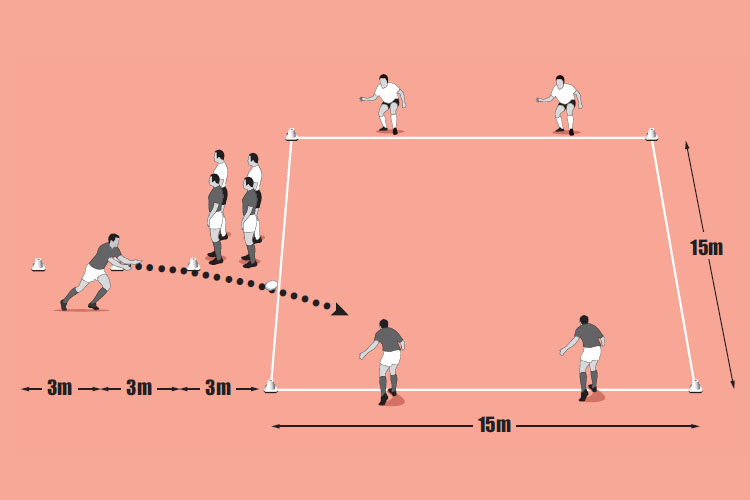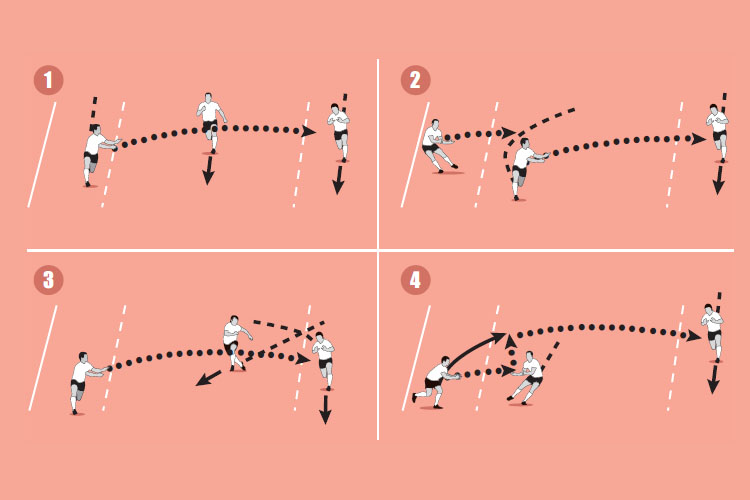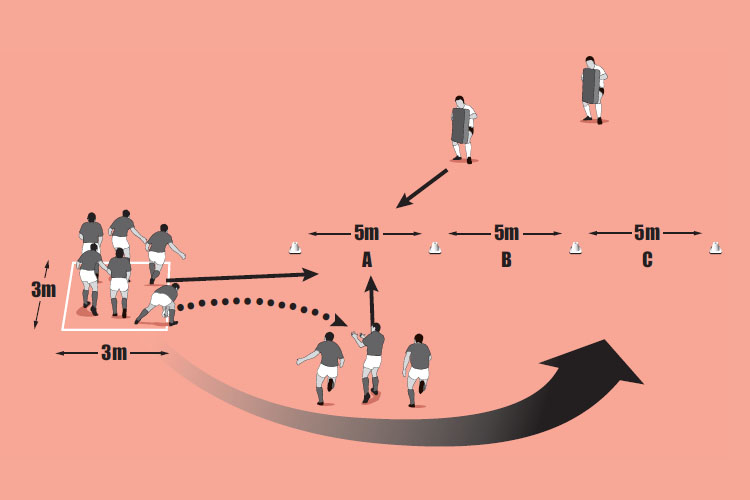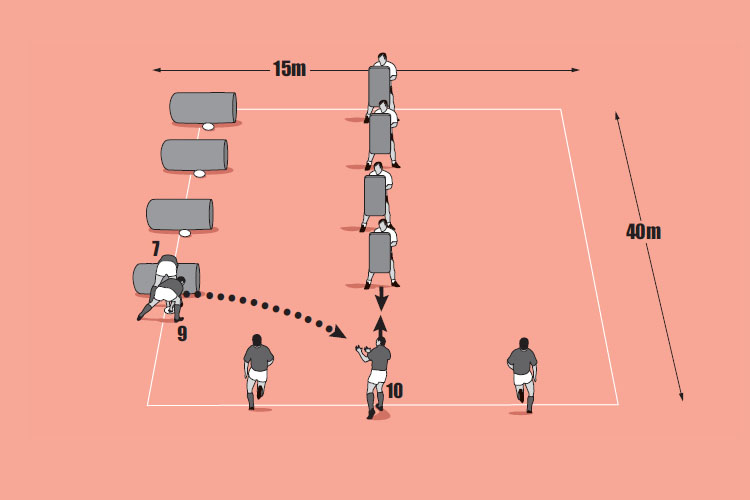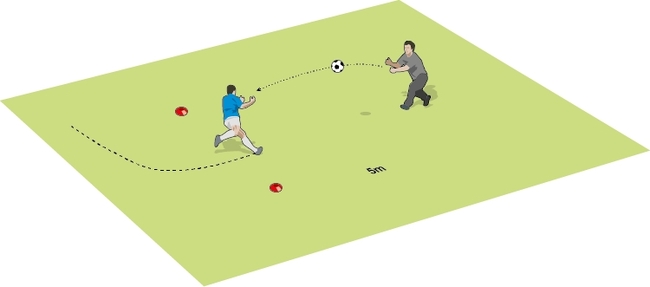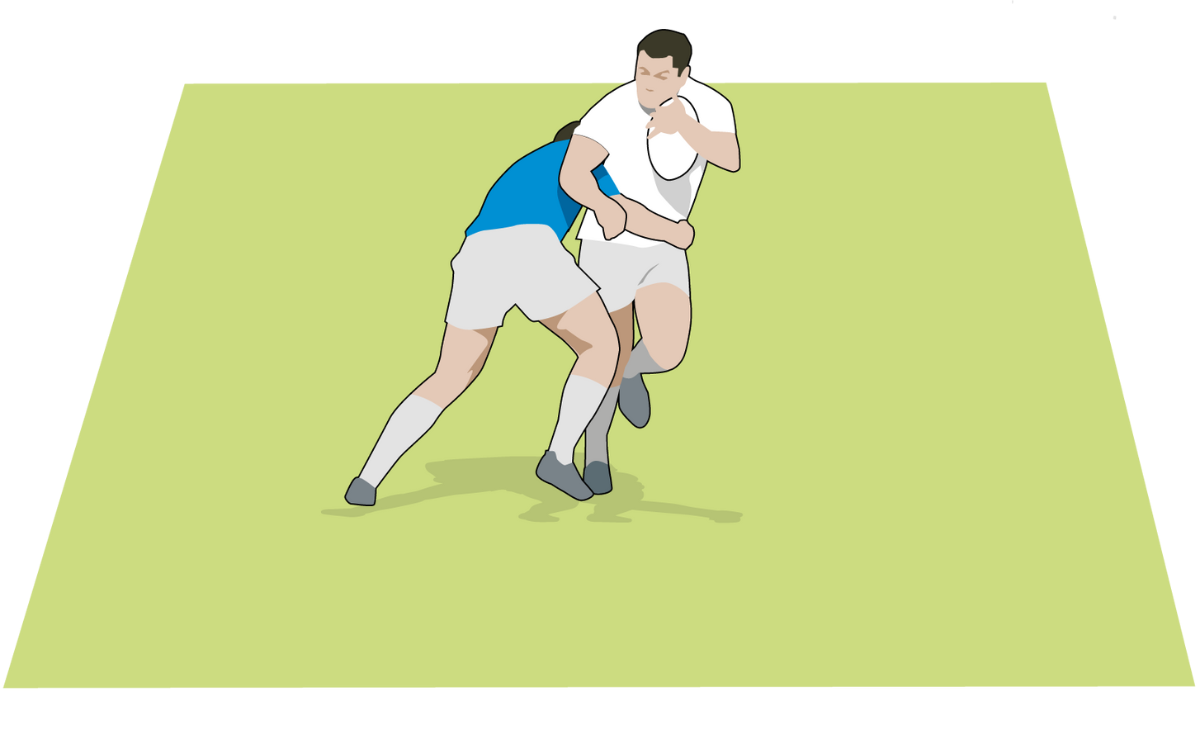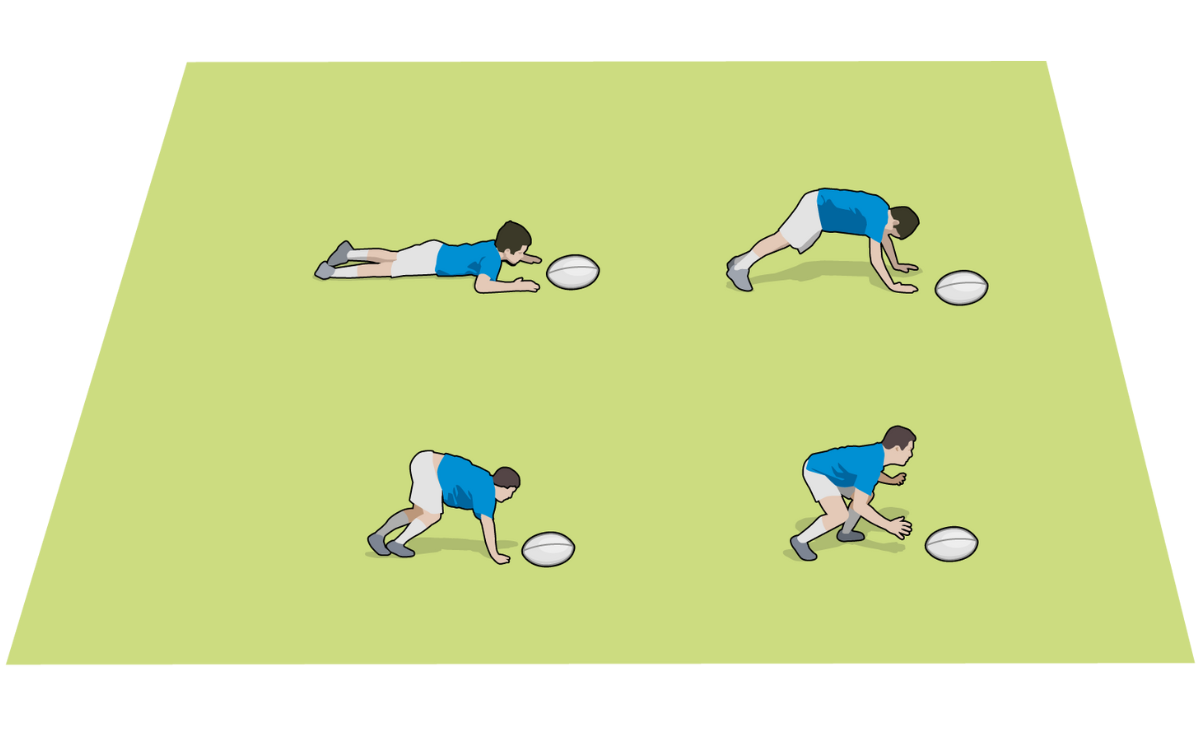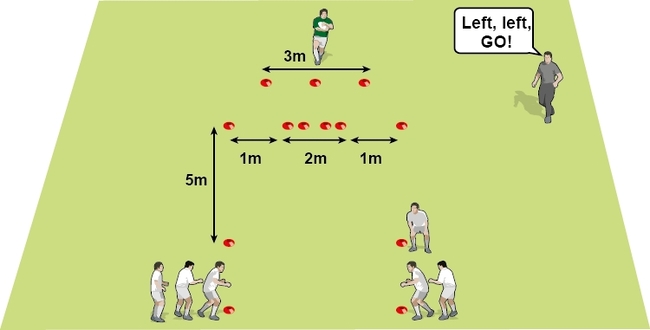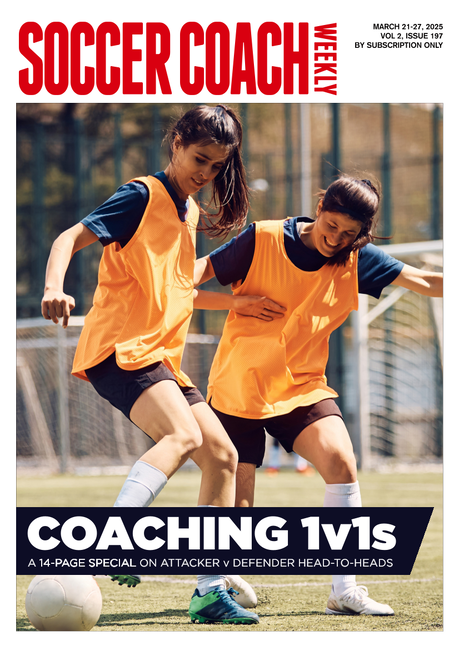Think ball in the tackle
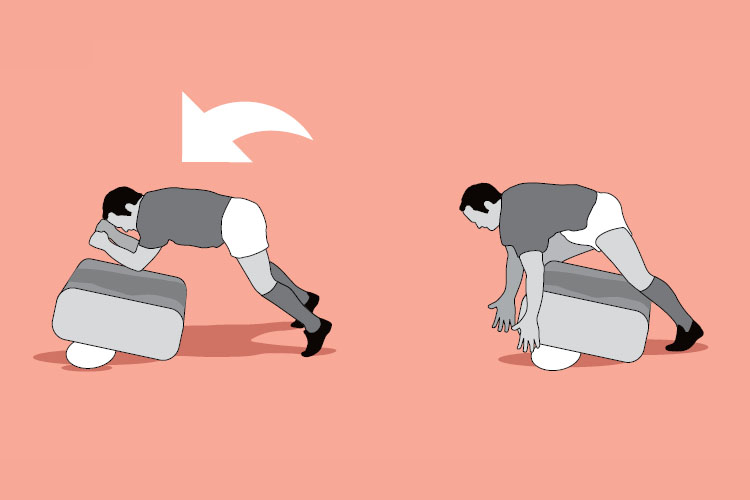
A one-on-one tackle finishes when the tackler has got to his feet to challenge for the ball. The tackler needs to get into the habit of making the tackle and then getting into the best position to gather the ball and hold off the incoming opposition. This session works on speed and body angles.
Warm up time: 7-10
Session time: 5-7
Development time: 10-15
Game time: 10-15
Warm down time: 7-10
What to think about
What can players do once they have successfully retrieved the ball? It depends on the support and the opposition in front of them. The best players turn with the ball and offload it quickly away from the tackle. Once he’s won the ball, the tackler must be in a strong position to take contact from opposition players, so should have a wide base, keeping the ball away from the oncoming players. What can the ball carrier do to prevent the tackler winning the race to get up first? The ball carrier should twist and roll in the tackle, to land on top of the tackler. They should place the ball away from the tackler and towards their own try line.set-up
- Tackle the ball carrier by driving him whilst you are still on your feet. Aim to land on top of him.
- Bounce off the ground or the tackled player, then step over the tackled player to take the ball.
- Rip the ball up and either move forward or turn to your own team.
What you get your players to do
Put a player next to a tackle pad, with a ball underneath it. The player falls onto the pad then gets to his feet to retrieve the ball. He should be in a strong position to be aware of where the opposition might come from. Progress by putting one player on one knee next to a ball carrier, also kneeling. The non-ball carrier tackles the ball carrier and gets up to retrieve the ball. Move to walking players and then running players.Thank you for reading
to enjoy 3 free articles,
our weekly newsletter, and a free coaching e-book
Or if you are already a subscriber, login for full access
Newsletter Sign Up
Coaches Testimonials

Gerald Kearney, Downtown Las Vegas Soccer Club

Paul Butler, Florida, USA

Rick Shields, Springboro, USA

Tony Green, Pierrefonds Titans, Quebec, Canada
Subscribe Today
Be a more effective, more successful rugby coach
In a recent survey 89% of subscribers said Rugby Coach Weekly makes them more confident, 91% said Rugby Coach Weekly makes them a more effective coach and 93% said Rugby Coach Weekly makes them more inspired.
Get Weekly Inspiration
All the latest techniques and approaches
Rugby Coach Weekly offers proven and easy to use rugby drills, coaching sessions, practice plans, small-sided games, warm-ups, training tips and advice.
We've been at the cutting edge of rugby coaching since we launched in 2005, creating resources for the grassroots youth coach, following best practice from around the world and insights from the professional game.


